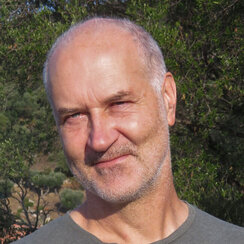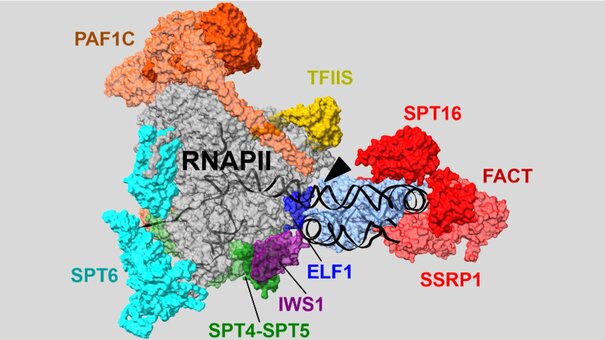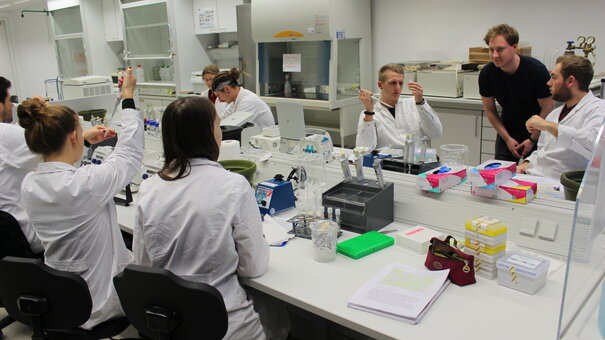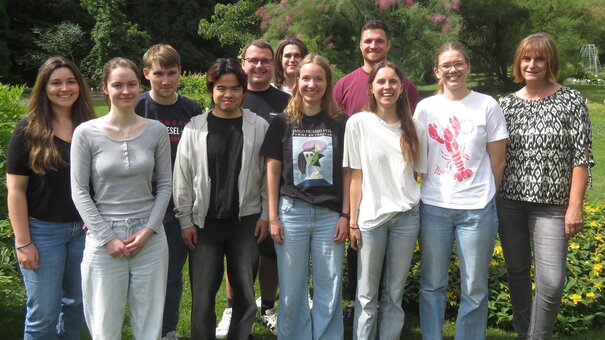Prof. Dr. Klaus Grasser
- Wichtige Informationen: We study how RNAPII transcript elongation and co-transcriptional processes in the chromatin context impact development and stress responses in plants

Mediated by proteins the genomic DNA is organised into a dynamic nucleoprotein structure termed chromatin. Analysing the Arabidopsis thaliana model system, our research addresses the regulation of transcript elongation by RNA polymerase II in the chromatin context. Particularly, factors that assist the elongation process are in the focus of our research. In addition, we examine co-transcriptional events that determine the fate of the freshly synthesised mRNAs, including mRNA export from the nucleus to the cytosol. We study how these processes collaborate to control gene expression and plant development (e.g. flowering, seed production) as well as responses to abiotic stress conditions.
Our research group is integrated in the Regensburg Centre for Biochemistry (RCB) (externer Link, öffnet neues Fenster) and we are part of the collaborative European doctoral network EpiSeedLink (externer Link, öffnet neues Fenster). Over the years, our research was thankfully funded by the German Research Foundation (DFG) (externer Link, öffnet neues Fenster) and other organisations.

Adresse - Prof. Dr. Klaus Grasser
- E-Mail Adresse: Klaus.Grasser(at)ur.de (öffnet Ihr E-Mail-Programm)
- Tel: +49-941-943-3032 (startet einen Telefonanruf, wenn Ihr Gerät dies zulässt)
- Standort: WNW E4, 1.305
- Wichtige Informationen: Fakultät für Biologie und Vorklinische Medizin
Universität Regensburg
Universitätsstraße 31
D-93053 Regensburg
Standort - Prof. Dr. Klaus Grasser
93053 Regensburg
Ihre Cookie-Einstellungen haben diese Karte blockiert.



